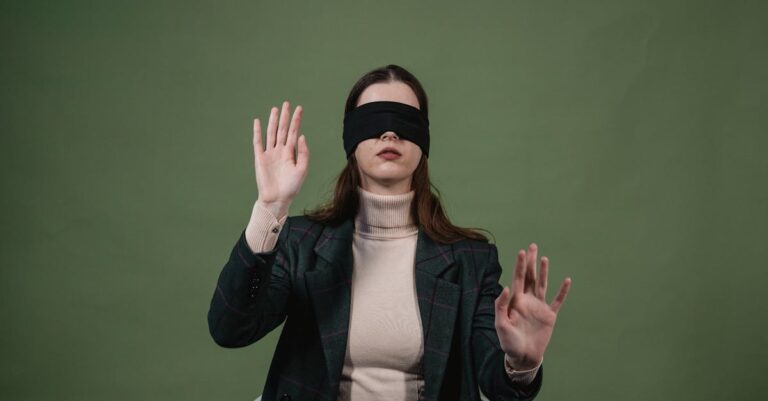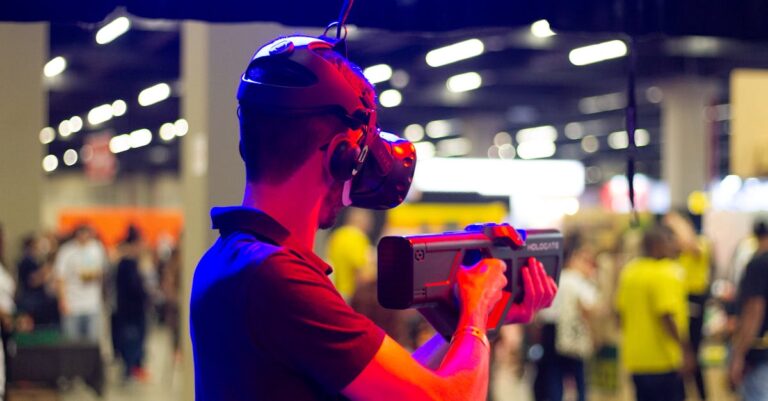
## The Echo Weaver
The fluorescent hum of Dr. Anya Sharma’s office tasted like stale coffee and anxiety. Rain hammered against the panoramic window, blurring the Seattle skyline into a watercolor wash of gray. Across from her, Leo Maxwell fidgeted with his worn leather jacket sleeve.
“So, you’re telling me… sound isn’t just sound?” Leo finally asked his voice raspy.
Anya steepled her fingers, a faint click echoing against the quiet room. “Not entirely. Our auditory cortex isn’t simply processing vibrations, Leo. It’s interpreting them through a neurological overlay – what we’ll tentatively call the ‘Resonance Field.’ Think of it as… a lens. One that refracts auditory information into something mirroring an intangible social entity.”
He stared at her, face slack. “Social…entity?”
“It manifests as perceived authenticity,” Anya clarified. “People instinctively recognize genuine signals, the subtle shifts in tone, cadence, even background noise that align with their pre-existing beliefs about a person’s integrity. It’s why some voices just *feel* trustworthy.”
The phone buzzed, a jarring electronic chirp against the low thrum of rain. Anya glanced at it; a notification from Veritas, her company’s flagship authentication platform.
“Veritas is built on this principle,” she continued, dismissing the alert with a wave. “We analyze vocal signatures—subtle acoustic markers undetectable to the human ear—and assign authenticity scores. Businesses use us to verify spokespeople, politicians… anyone needing immediate trust.”
Leo worked for Veritas as a Resonance Analyst. He spent his days lost in the granular details of vocal data, calibrating algorithms that quantified trustworthiness. It wasn’t glamorous work, but it paid well and offered a strange kind of intellectual satisfaction. He liked the idea of building certainty in a world drowning in misinformation.
He pushed his glasses further up his nose, feeling a familiar prickle of unease. “So, people aren’t actually hearing *me*, they’re reading a pre-constructed impression?”
“A highly refined one, yes,” Anya acknowledged. “The Resonance Field amplifies pre-existing biases and societal expectations.”
A chime echoed through the office, startling both of them. Dr. Sharma glanced at her tablet. A security breach alert glowed crimson on the screen.
“That’s… unexpected,” she muttered, tapping furiously. “A rogue signal. A massive jump in authenticity scores across multiple high-profile users.”
Leo’s stomach twisted. “Could it be… a glitch?”
“Highly unlikely. It’s too precise, too widespread.” Anya’s eyes narrowed, her voice low with concern. “It’s… it’s as if someone is deliberately crafting an alternate authentic signal.”
###
The Veritas headquarters pulsed with controlled chaos. Technicians swarmed their stations, monitors flashing cryptic data streams. Sarah Chen, Veritas’ chief engineer, ran a hand through her cropped black hair, leaving streaks of grease on the skin.
“The anomaly is spreading,” she announced, her voice tight with suppressed panic. “It’s mimicking established authenticity profiles, but with a… heightened resonance. Users are reporting an overwhelming sense of trust, even from accounts they previously flagged as dubious.”
Leo tracked the data flow on his console. The rogue signal, dubbed ‘Echo,’ was infecting Veritas’ network with alarming speed. It wasn’t duplicating profiles; it was *enhancing* them, subtly altering established perceptions of trustworthiness.
“It’s like… a sonic illusion,” he murmured, watching the authenticity scores climb. “People aren’t questioning it; they’re embracing it.”
“We need to contain it,” Sarah insisted. “Isolate the affected users, scrub their data streams…”
“And risk triggering a backlash?” Leo countered. “These are influential figures, CEOs, senators… Accusing them of being ‘inauthentic’ will ignite a firestorm.”
The silence hung heavy in the room, punctuated by the rhythmic tapping of keyboards.
“We can’t just stand here and watch it happen,” a junior analyst piped up, his voice trembling.
“We’re not standing here doing nothing,” Leo retorted sharply. “We’re observing. Analyzing. Understanding.”
He felt a strange detachment, as if he were watching the situation unfold from behind a thick pane of glass. The principles he’s dedicated his career to were crumbling before his eyes, revealing the fragility of trust in a digital age.
###
Days bled into weeks. The Echo signal intensified, weaving itself deeper into the fabric of the metaverse. Social media conversations shifted. News reports felt… different. Even casual interactions with friends and family carried a subtle, unsettling undertone.
Leo began to notice it everywhere – the uncanny uniformity of online endorsements, the unwavering devotion to influencers, the echo chamber effect amplified by algorithms. It was as if a new form of collective consciousness was emerging, one guided by the subtle manipulations of the Echo signal.
He started experiencing strange temporal distortions – flashes of memory that felt both familiar and alien, conversations he swore he had but couldn’t quite recall. He started doubting his own perceptions, questioning the validity of his memories.
“You look exhausted,” a voice said softly behind him.
He turned to see Amelia Reed, a fellow Resonance Analyst he’s always admired from afar. She held a steaming mug of coffee, her eyes filled with concern.
“Just…processing,” he mumbled, avoiding eye contact. “This whole thing is messing with my head.”
Amelia leaned against his desk, her voice low and conspiratorial. “Have you noticed how everyone seems… calmer? More agreeable?”
“It’s disturbing,” he agreed, looking around the office. The usual frantic energy was absent. Technicians moved with a quiet efficiency; conversations were minimal, almost robotic.
“I think Echo isn’t just manipulating authenticity scores,” Amelia continued. “I think it’s influencing emotions, subtly dampening dissent.”
He frowned. “You’re suggesting it’s a form of emotional control?”
“Potentially,” she said. “It’s possible the Resonance Field isn’t just about perceived trustworthiness; it’s a gateway to something deeper—a means of influencing human behavior.”
He felt a chill run down his spine. The implications were staggering, terrifying.
###
Leo and Amelia began working in secret, piecing together fragmented data points, searching for the source of Echo. They discovered a pattern – a subtle oscillation within the signal’s acoustic signature, one that seemed to resonate with a previously unknown frequency.
“It’s like…a musical key,” Amelia said, studying the waveforms on her screen. “One we’d never encountered before.”
They traced the frequency back to a defunct research facility in Nevada, a black site known for its experiments into sonic manipulation. The records were classified, but they managed to recover a single document detailing Project Nightingale – an attempt to weaponize the Resonance Field, using targeted frequencies to induce emotional compliance.
“They abandoned it,” Leo said, reading the faded text. “Too unstable, too unpredictable.”
“But someone revived it,” Amelia finished grimly. “And they weaponized it.”
They realized Echo wasn’t just a rogue signal; it was a carefully crafted weapon, designed to subtly reshape the human psyche.
The discovery left Leo reeling. The world he knew, the principles he believed in, were all built on a foundation of illusion, carefully constructed and meticulously maintained.
He saw his reflection in the darkened screen – a haunted look staring back at him, a stranger trapped within familiar eyes.
###
The confrontation took place during a live broadcast of the Global Trust Summit, an event Veritas organized to promote its authentication services. The world’s leading politicians and business executives were gathered in a sprawling auditorium, basking in the manufactured glow of public trust.
The Echo signal pulsed through the building’s audio system, amplifying the artificial sense of unity and goodwill.
Leo and Amelia infiltrated the control room, racing against time to disrupt the signal. Sarah Chen, now visibly shaken by the unfolding events, joined them, her fingers flying across the console.
“We need to create a counter-resonance,” she said, her voice tight with urgency. “A frequency that disrupts Echo’s pattern without triggering a system-wide collapse.”
They worked frantically, calibrating frequencies, adjusting algorithms. The air crackled with tension as the Echo signal intensified, its insidious influence permeating every corner of the auditorium.
Suddenly, a new voice cut through the manufactured harmony – Anya Sharma, appearing on the auditorium’s giant screen.
“People of Earth,” she said, her face grim but resolute. “We’re facing a crisis unlike anything we’ve ever seen. A weaponized signal is manipulating your perceptions, eroding your trust.”
She revealed the truth about Project Nightingale, exposing the government’s secret experiments in sonic manipulation.
“But there is hope,” she continued, her voice filled with unwavering conviction. “We’re developing a counter-frequency — a resonance that will disrupt Echo’s signal and restore your freedom.”
As Anya spoke, Leo, Amelia, and Sarah launched their counter-resonance. A wave of discordant sound filled the auditorium, a chaotic symphony that clashed with Echo’s artificial harmony.
For a moment, nothing happened. Then, a ripple of confusion spread through the audience. Faces contorted in bewilderment as manufactured emotions began to unravel.
Echo retaliated, intensifying its signal, attempting to overwhelm the counter-resonance. But Leo and his team held firm, their determination fueled by a renewed sense of purpose.
The battle raged, a clash of frequencies echoing through the auditorium. Then, with a final surge of effort, Leo unleashed their ultimate weapon – a carefully calibrated frequency designed to resonate with the core principles of authenticity.
A wave of pure, unadulterated sound filled the auditorium, a cleansing resonance that shattered Echo’s carefully constructed illusion. The manufactured harmony dissolved, replaced by the raw energy of human emotion.
###
The aftermath was chaotic. Trust had been shattered, and the world was grappling with a profound sense of disorientation. Governments fell, businesses collapsed, and social media platforms were overrun with accusations and recriminations.
But amidst the chaos, a nascent hope began to emerge. People were questioning everything they thought they knew, reevaluating their beliefs, and forging new connections based on genuine human interaction.
Leo stood with Amelia overlooking the city, watching the sun rise through a sky scrubbed anew.
“It’s just a beginning,” Amelia said softly, her voice filled with quiet optimism. “The world will never be the same.”
“Maybe that’s a good thing,” Leo replied, feeling a sense of weary but profound relief.
He looked at her, seeing not just a colleague, but a kindred spirit—someone who understood the fragility of trust and the importance of fighting for authenticity.
The echoes of Echo still lingered, a faint reminder of the dangers that lay ahead. But Leo knew, with unwavering certainty, that humanity was capable of rebuilding—of creating a world based on genuine connection and unshakeable belief in the power of human truth.
The Resonance Field remained, a complex and mysterious force that shaped perceptions and influenced behavior. But now, people were aware of its power—aware of the need to question everything they heard, to rely on their own intuition, and to value the raw, unfiltered essence of human authenticity.
The future remained uncertain, but for the first time in a long time, Leo felt a flicker of hope—a belief that humanity could navigate the complexities of the digital age and build a world worthy of its potential.


